View the spoiler for my guess at what I think it might be, but please first come to your own conclusion before looking at mine — I don’t want to bias your guess.
My guess
Psilocybe cyanescens
They were found in mid-november in the Salish Coast region of Cascadia. They were growing out of woodchips composed of a mixture of western hemlock (majority), and western red cedar.
Side view of one full mature specimen:
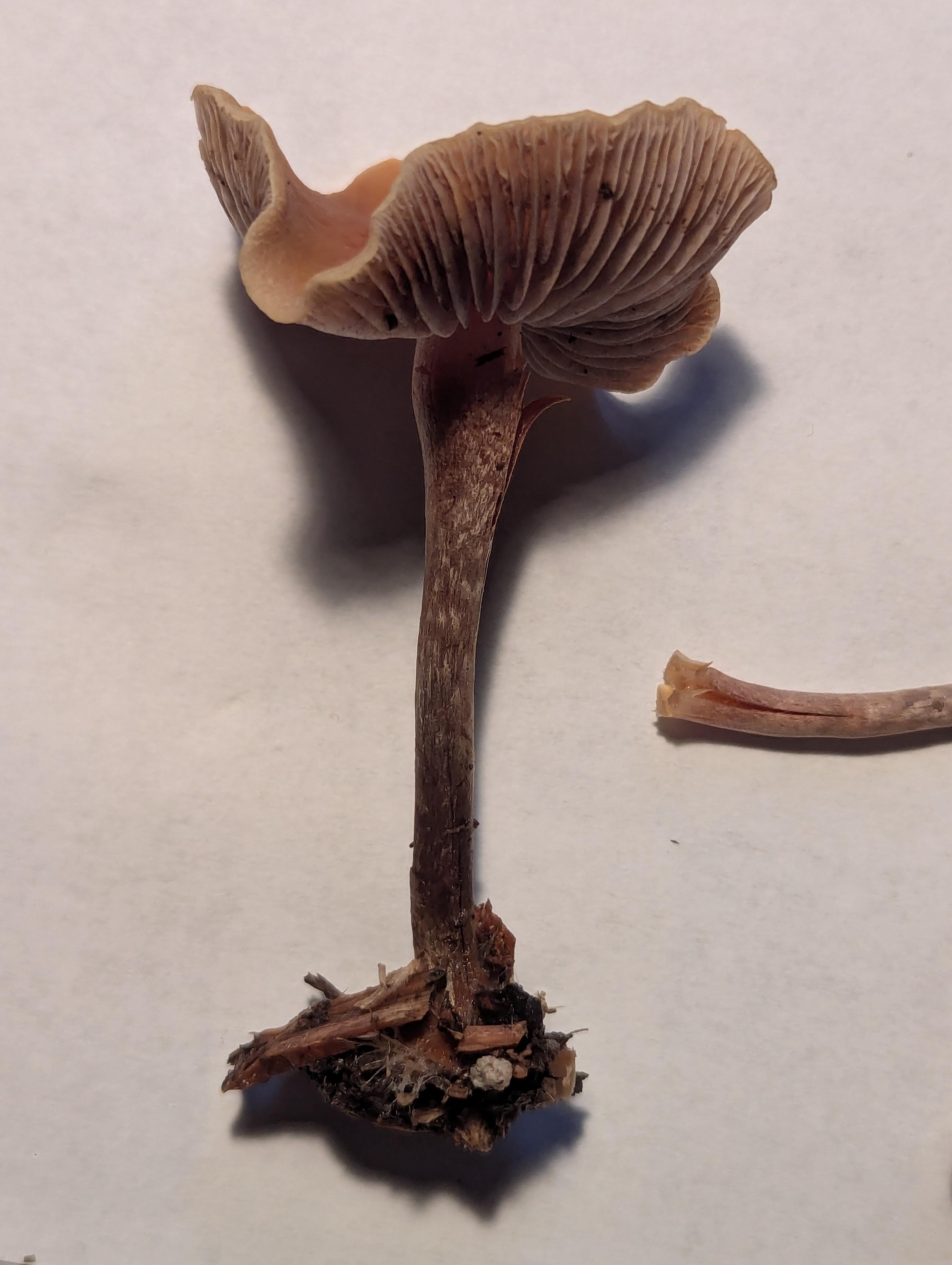
A group with a sample of the substrate (the cap appears to be umbonate):

A closeup side view, and internal view of the stem (it appears to be hollow):
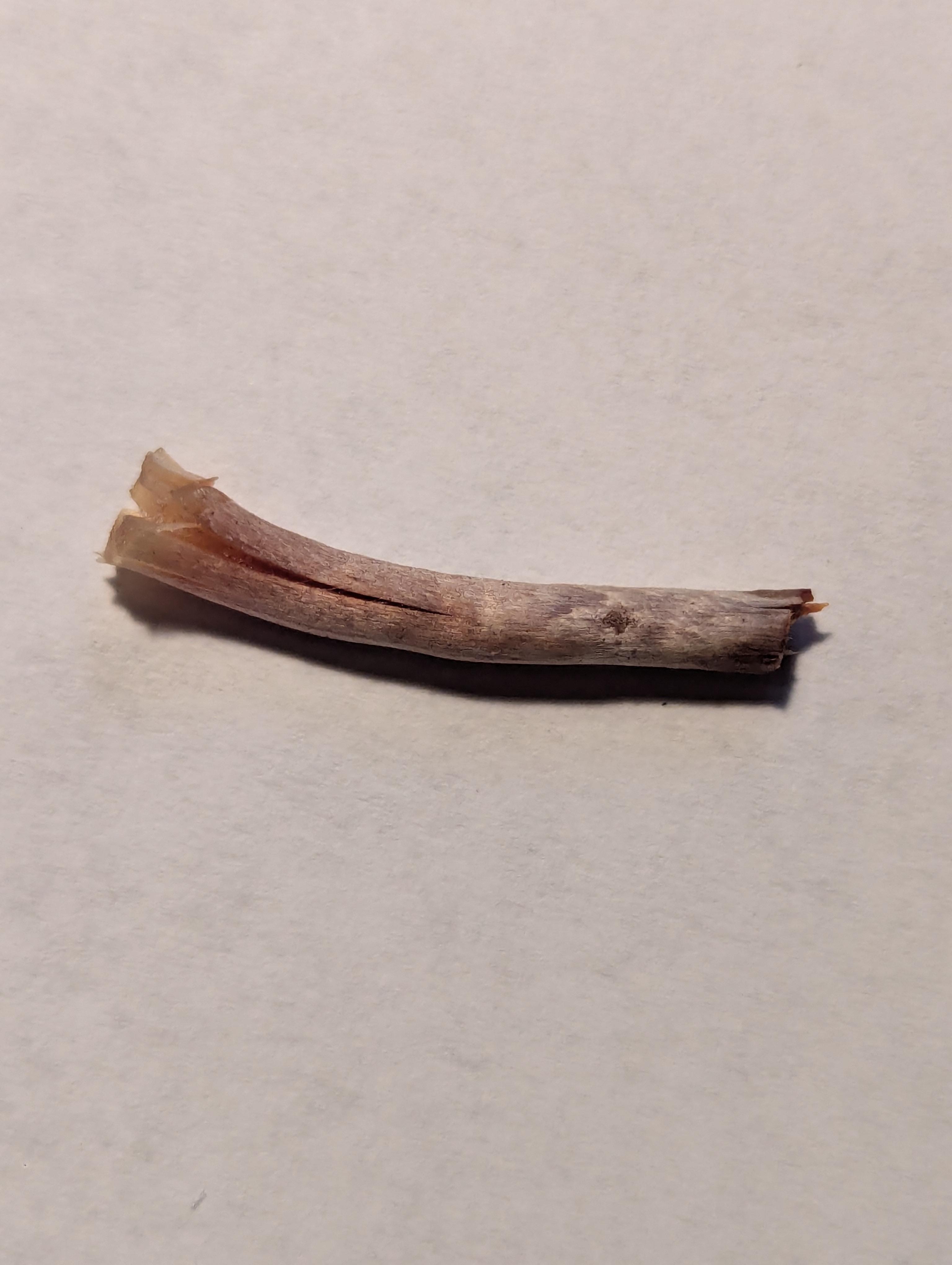
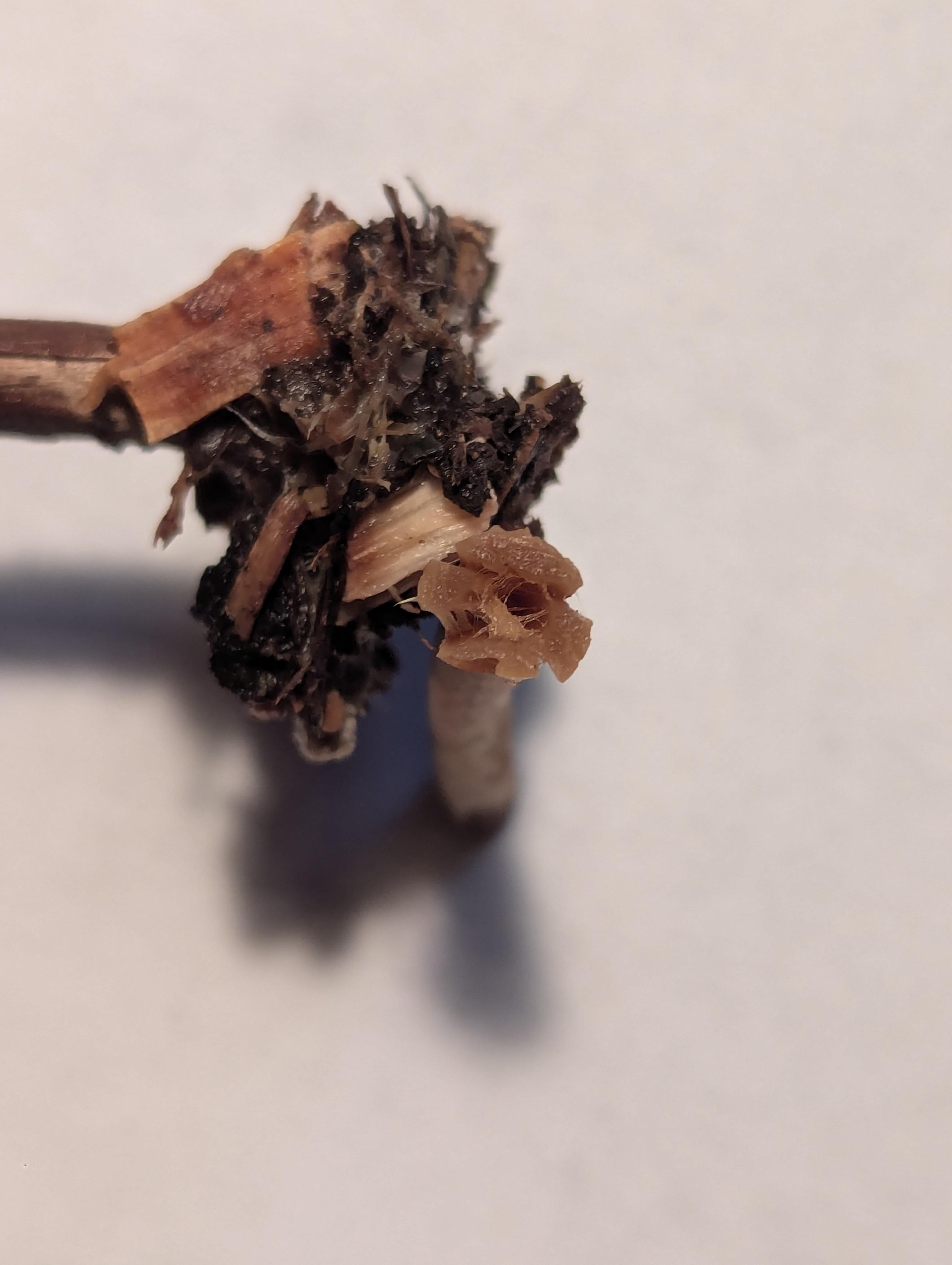
Cross section of the gills — they appear to be adnate, or sub-decurrent:
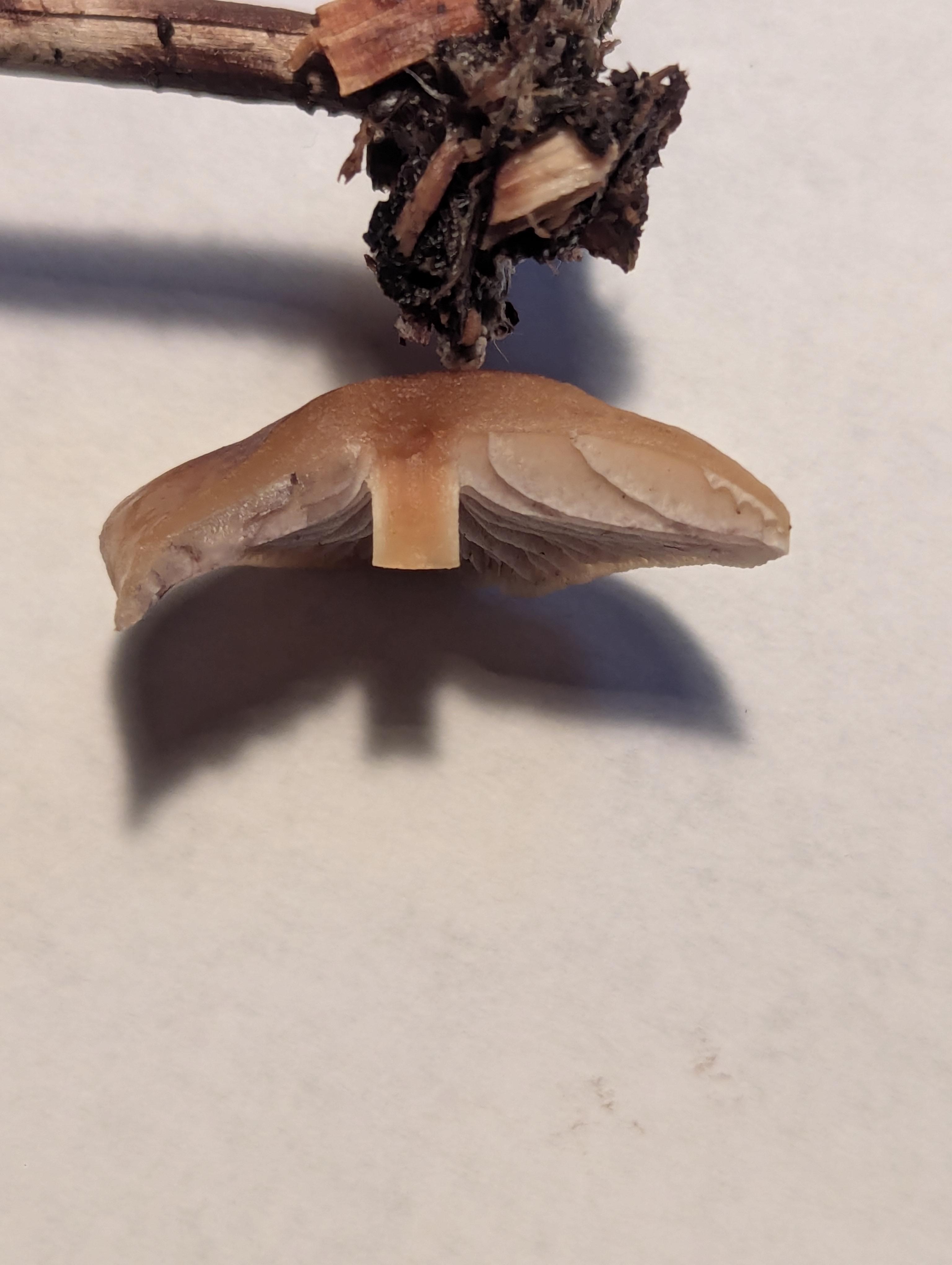
Underside of view of the gills:
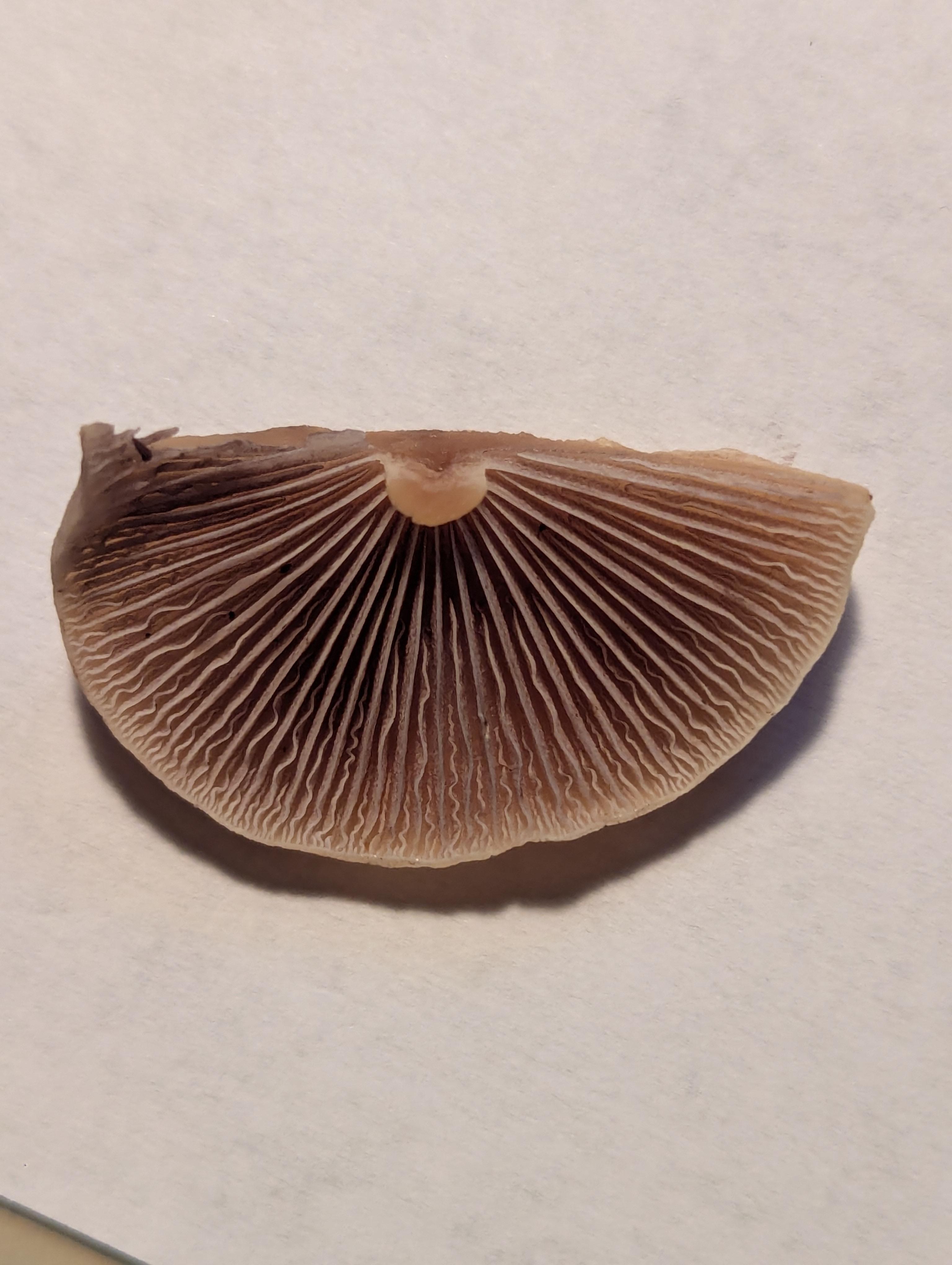
Spore print (first on white background (the split is due to two halves), second on a black background):
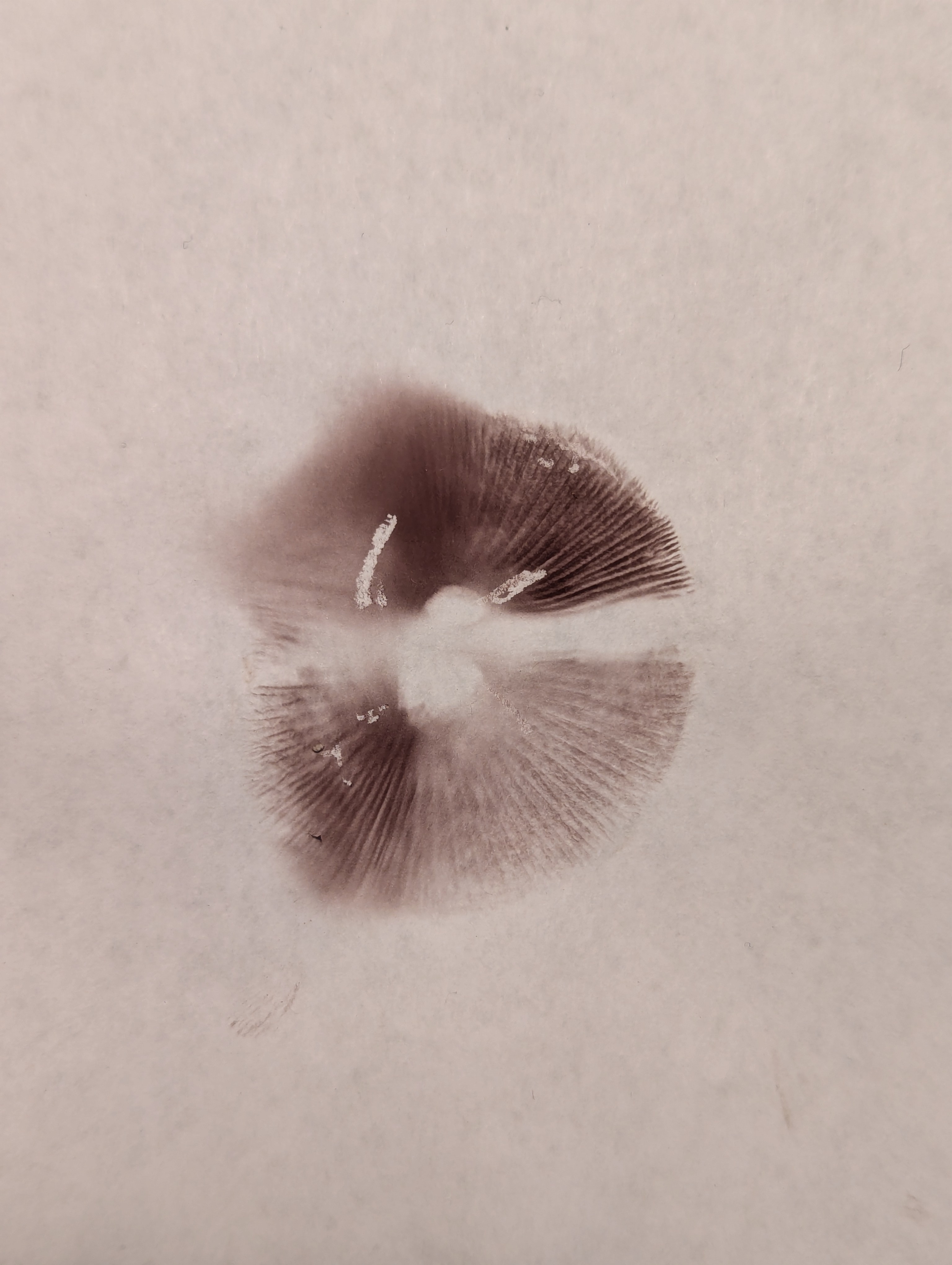
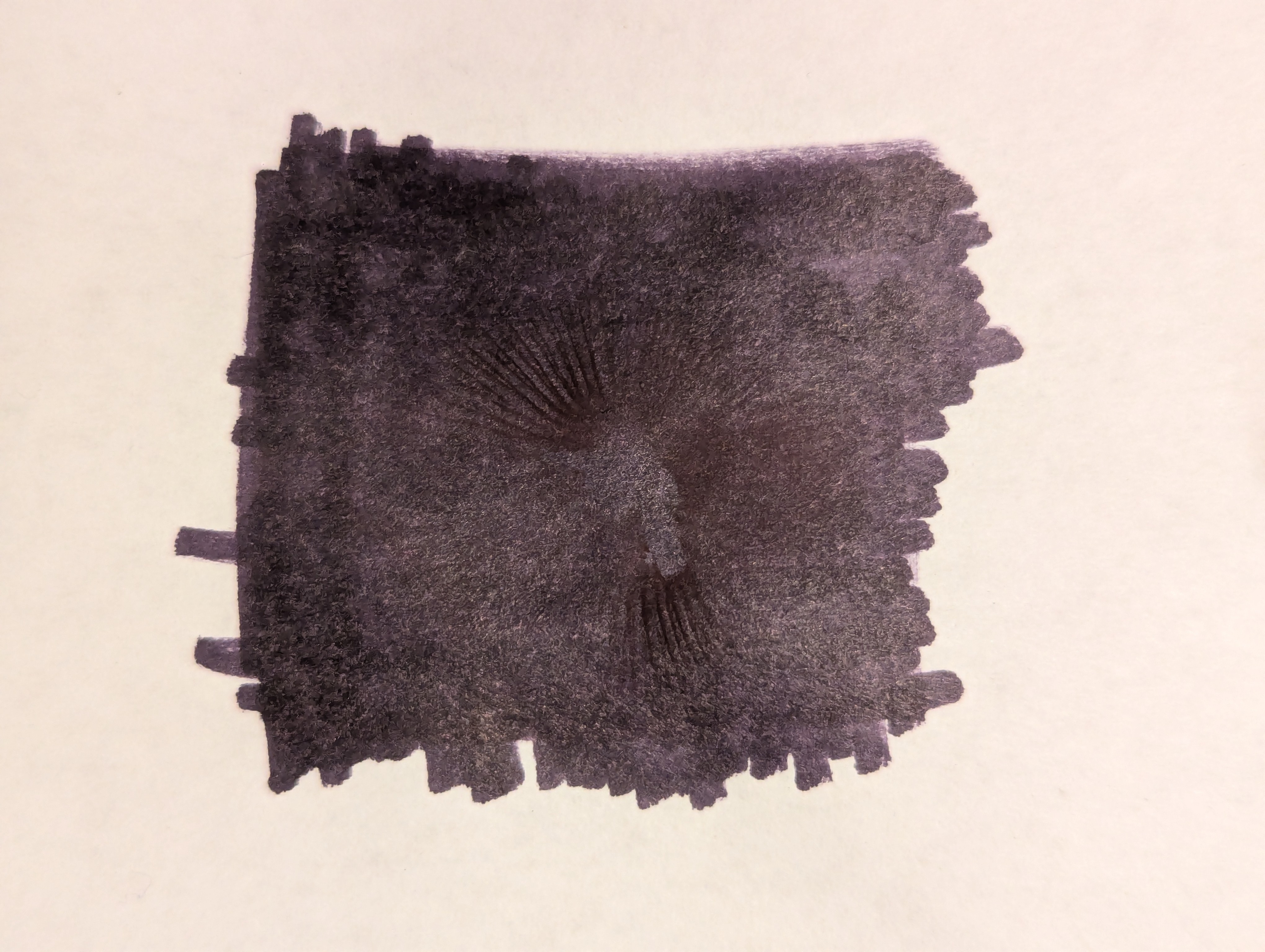
Examples specimens once dried:
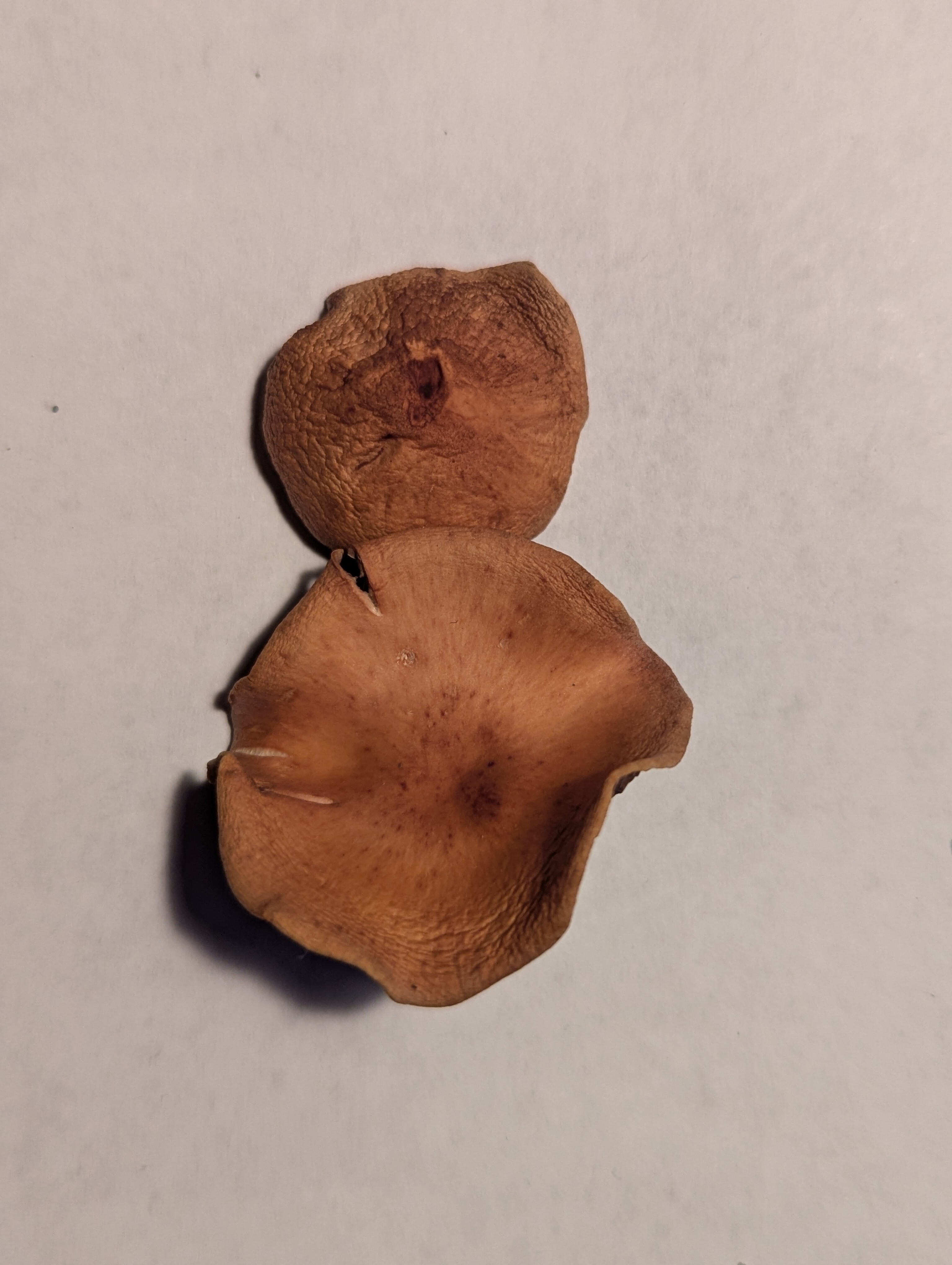
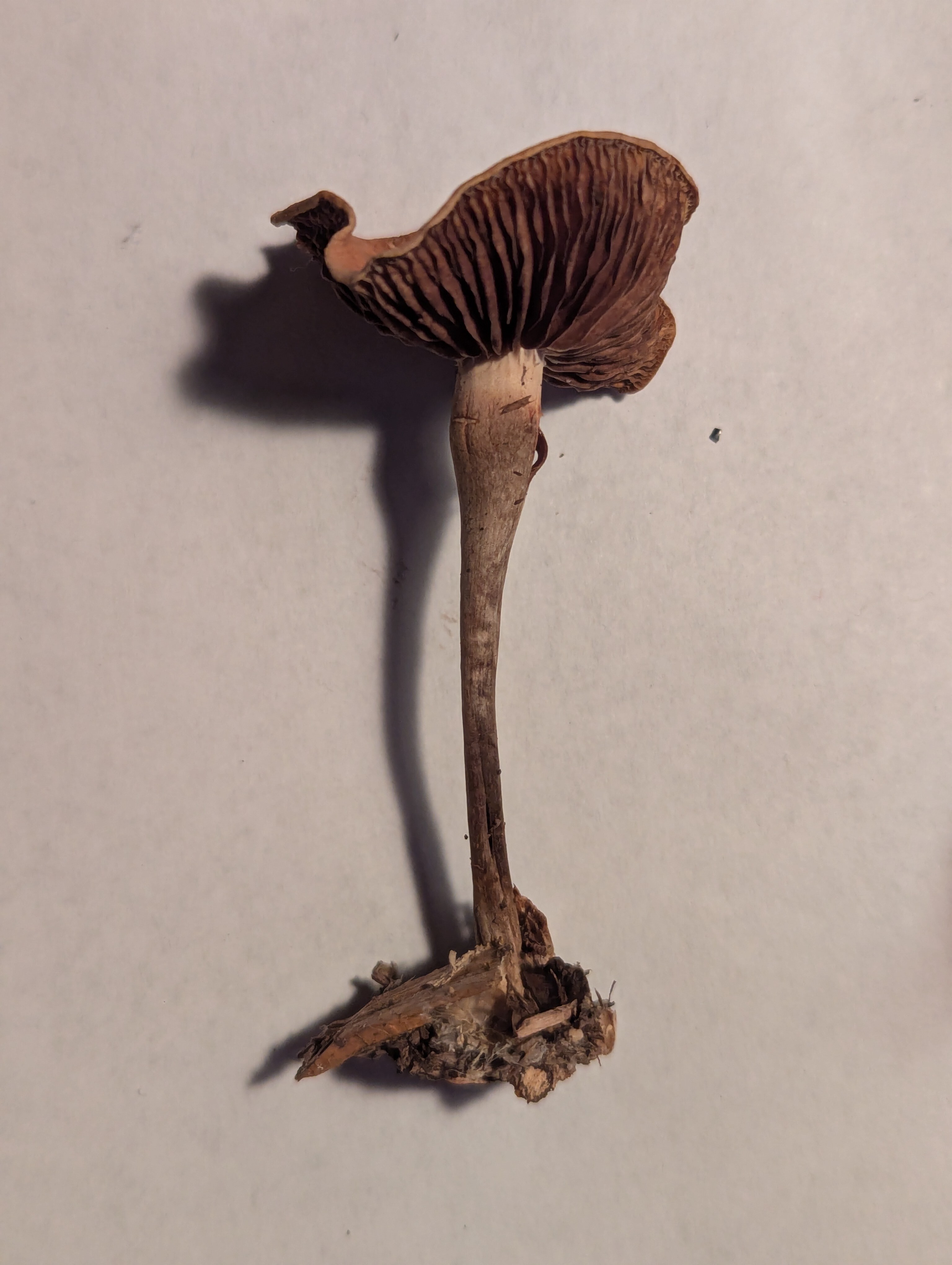
Examples of the colony, and the location/substrate in which it was growing:
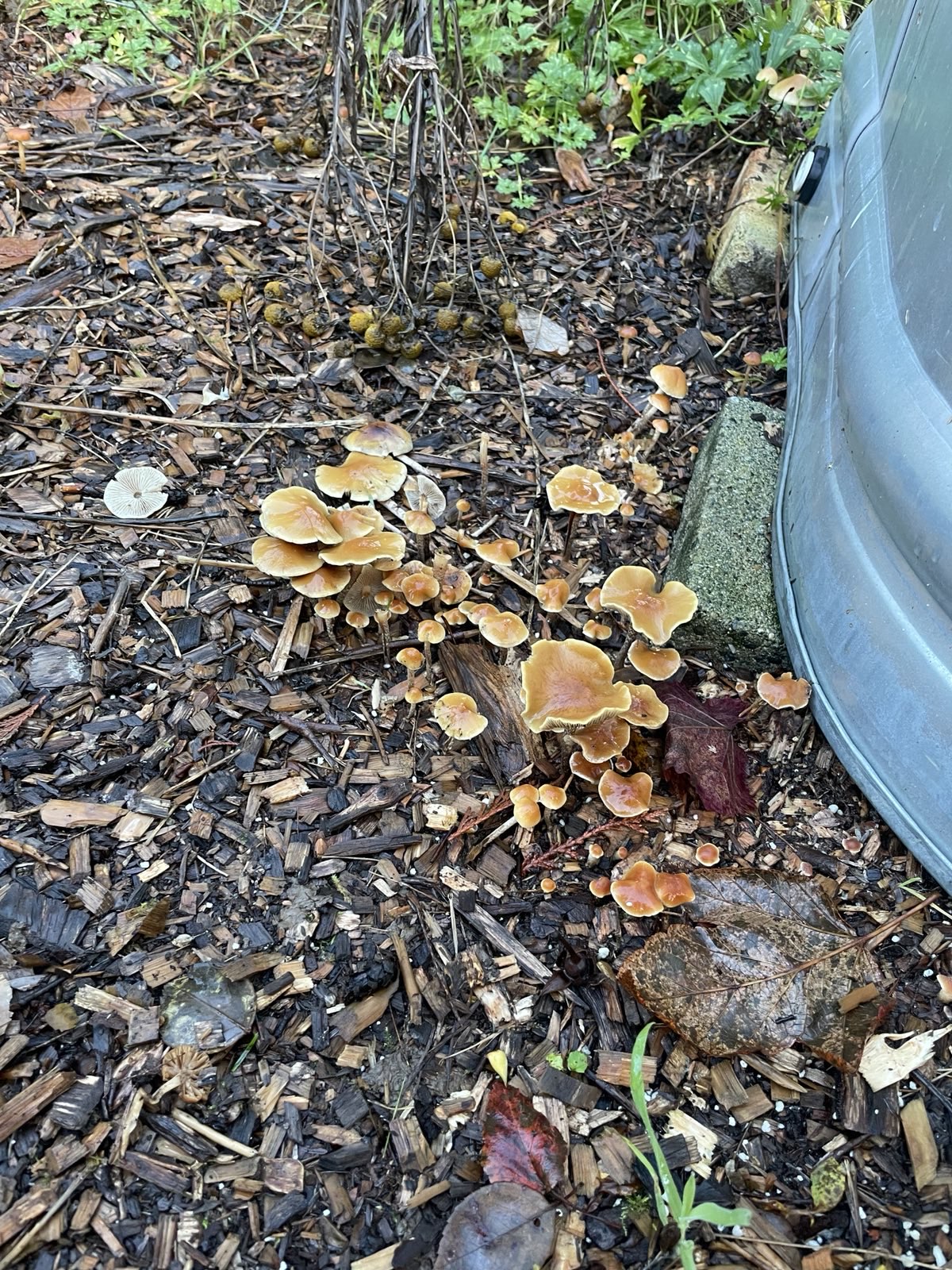
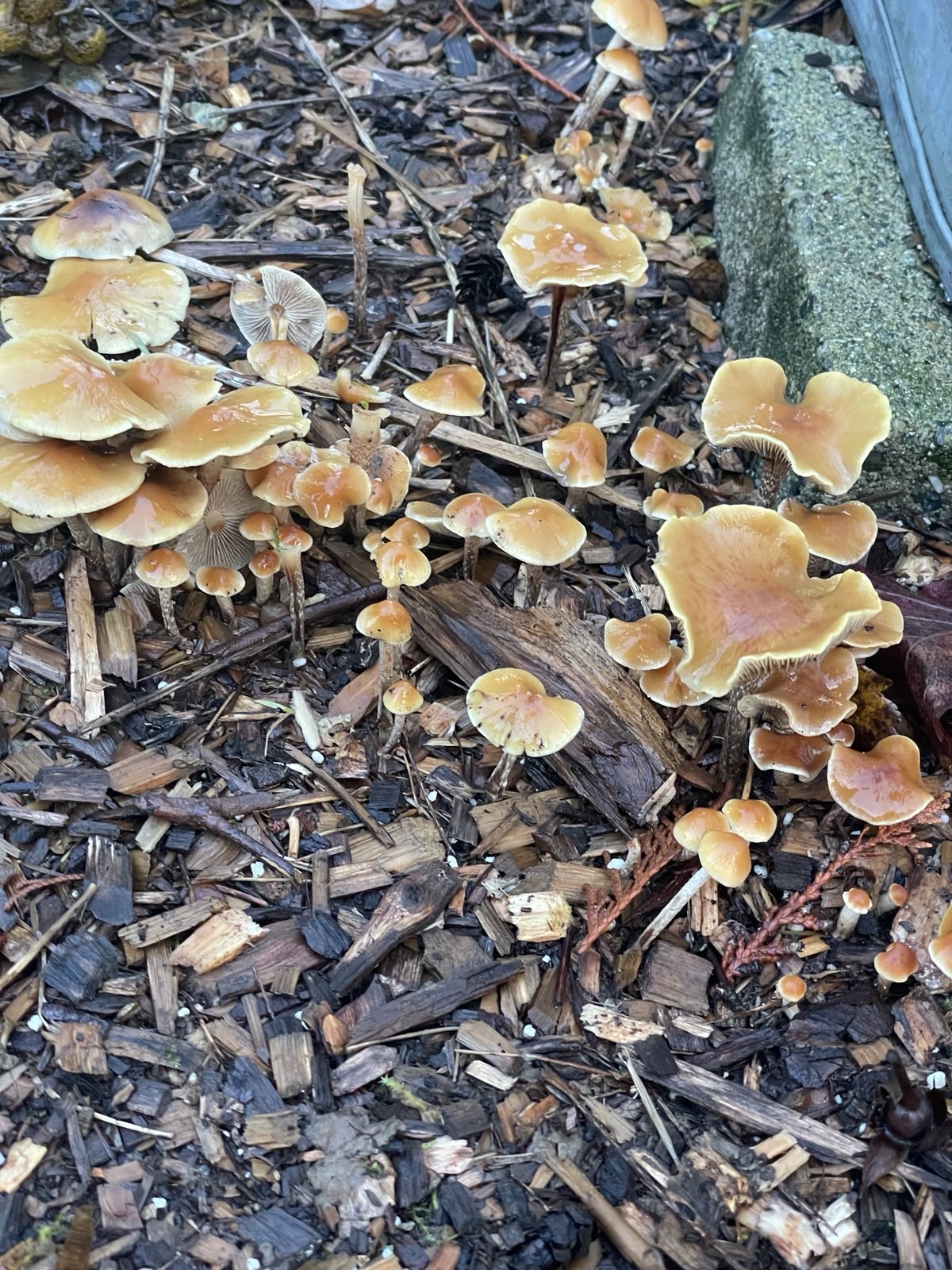
Cross-posts:

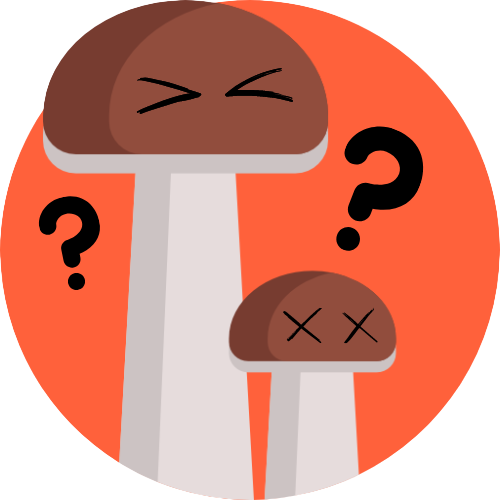
Nice photos! I am finding it very difficult to ID with confidence.
If I would see even a tiny speck of blue bruising I would be more inclined to agree with P. cyanescens, but I don’t see any at all, which makes me very suspicious.
Some alternatives I looked into: Cortinarius, Inocybe, Tubaria, Psathyrella.
Is there any other bit of information that I could provide that would aid in their definitive identification?
I don’t think I would be able to identify them, sorry.
Some specific information could help. The breaking veil of a young specimen showing the web-like cortina of Cortniarius (like in the first image here) would suggest that genus.
I think that the spore print you have shown rules out Tubaria.
A photo of the spores taken with a microscope could help definitely rule out Psilocybe. However, confirming definitely Psilocybe would still be difficult from the spores. If any of the specimens would show some blue bruising that would be a very strong argument for Psilocybe.
I don’t currently have an image for proof, but, from what I recall, the baby ones did not have that.
No need to apologize! I appreciate your comments nonetheless.
Yeah, I would’ve liked to have provided a microscopic image of the spores, but I don’t currently have access to a microscope of sufficient magnification to image them. Though I likely will soon, and, if possible, I will update with that information.